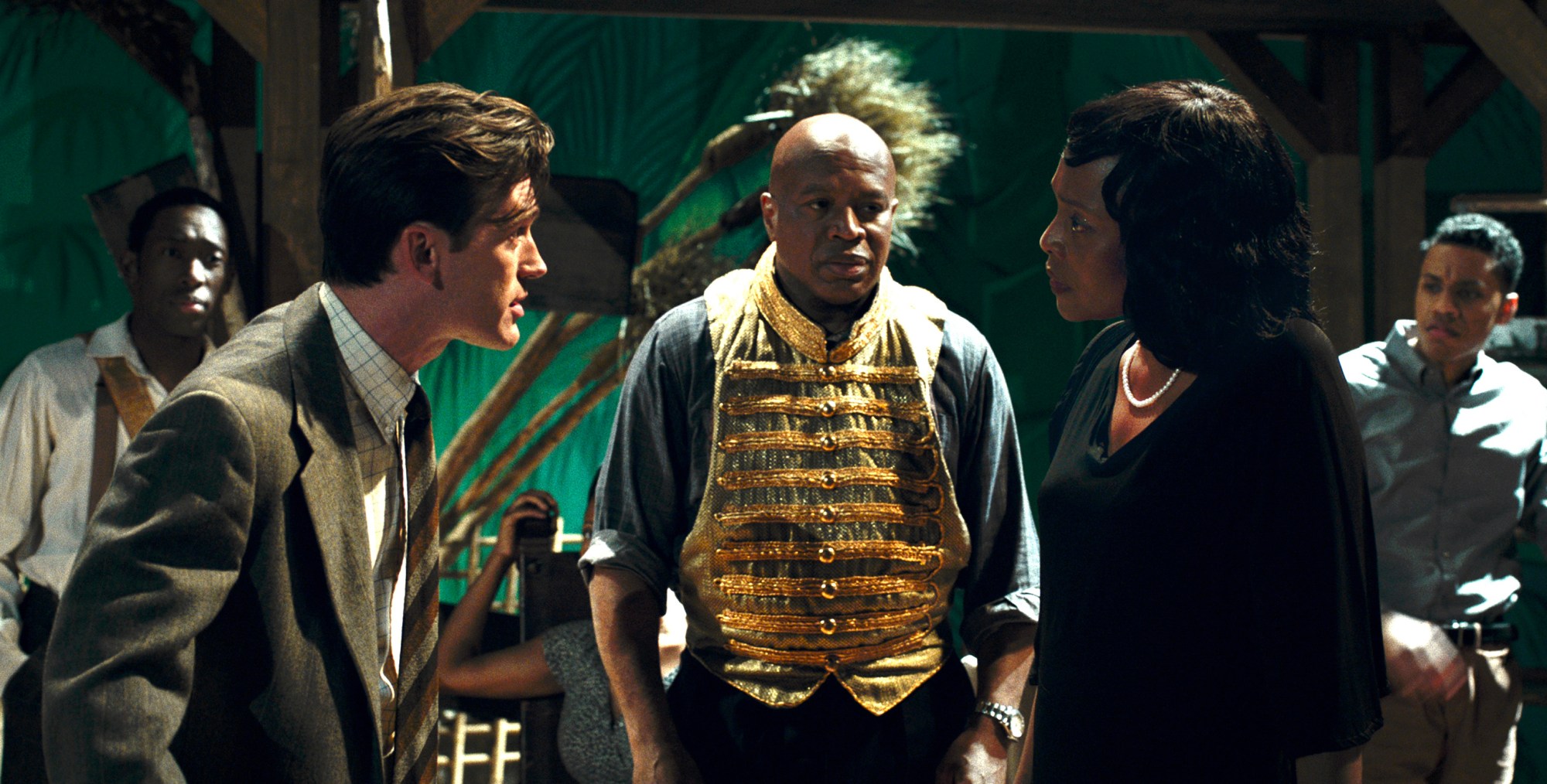
- HFPA
“Voodoo Macbeth” – by USC School of Cinematic Arts
Voodoo Macbeth marks the first theatrical release from USC Originals in association with Warner Bros and was overseen by veteran producer and USC professor, John Watson (Robin Hood: Prince of Thieves, Backdraft and The Outer Limits). The film was made almost entirely by past and present students at the USC School of Cinematic Arts – a long-time HFPA grant recipient – and is based on the true story behind the 1936 all-black Shakespeare production of Voodoo Macbeth.
Now considered one of the landmark events in the history of African American theatre, the highly controversial production was the brainchild of Orson Welles, long before Citizen Kane and The War of the World, and a collaboration with Negro Theatre directors John Houseman and Rose McClendon. In a 1982 interview, Welles has said, “By all odds, my great success in my life was that play, because the opening night there were five blocks in which all traffic was stopped in Harlem…and when the play ended, there were so many curtain calls that finally they left the curtain open, and the audience came up on the stage to congratulate the actors. And that was magical.”
While Voodoo Macbeth had ten directors, eight writers and three producers, Watson explains how this unique collaboration of artists found one voice. What follows below are excerpts from a recent Zoom interview.
How did the idea to make the feature film come about?
This was the seventh or eighth film we made from the school. It was my crazy notion that we have so many talented young filmmakers from all over the world whose ambition is to either make a feature film or work on a high-profile television show, so I thought, why don’t we do that? It’s a melding of the two genres in a way, in that we are making a feature film but we’re borrowing a lot of what’s used for television. We took the notion of creating a writer’s room with the best of our current writers who are interested in whatever genre we’re exploring, and we take the script and put it into episodes and have different directors do each one. This works perfectly on TV, because as long as you’ve got consistent showrunners and the same heads of department with design and editing and all that, episode 37 should look similar to episode 3, right?
How do you structure the pre-production and filming as a class?
We use the production semesters to make sure we’re all making the same movie as far as the look, the style, the form, making script adjustments to everybody’s taste, making sure all the directors know who the characters are and knowing how to talk to their actors in a similar way so they’re not giving opposing instructions. They all shoot a complete test of all their films using iPhones where they figure out what the angles are and what style it’s in, so we can all look and go, ‘you’re using too much moving camera’ or ‘you’re using too many closeups.’ Against all odds it works, and it has worked consistently with every production. At the end of the semester, everyone is ready to shoot the film.
What are some of the other films produced in this program?
James Franco helped us fund and put together this absurdly ambitious film, Don Quixote: The Ingenious Gentleman of La Mancha (2015), which got onto Netflix and was well reviewed. We also did one called The Mad Whale, which was set in a female insane asylum where the inmates put on a stage production of “Moby Dick”. We look for different genres each time and I find topics that can be accomplished reasonably by looking for something that can be written in a 15-week period and is in the public domain or we have free access to it. The success of Mad Whale triggered me to look for another play within a play, so of course I googled around Shakespeare and found this story about “Voodoo Macbeth” which isn’t really known to many people.
How do you decide on who makes the film?
The basic idea is that the writing and directing is by current students who are about to graduate and then all the other roles are filled by former students, so our current group kind of vote on who should be the DP or editor or designer and I take a look and help them pick the best people to make the movie. When they’re filming, I visit set and I’m involved and accessible, but I don’t hang around and make all the day-to-day decisions; I leave that to them.
Do you always recognize the film students who will break out?
I knew (Black Panther director) Ryan Coogler was a stand-out, but everyone could recognize that with him from the first film he did in his first semester that got an award at the Cannes Film Festival. Ryan was also the only student in my production class who would sit in the front row while everyone else hid in the back and he kept asking lots of questions, so I was like, ‘who is this kid?’

